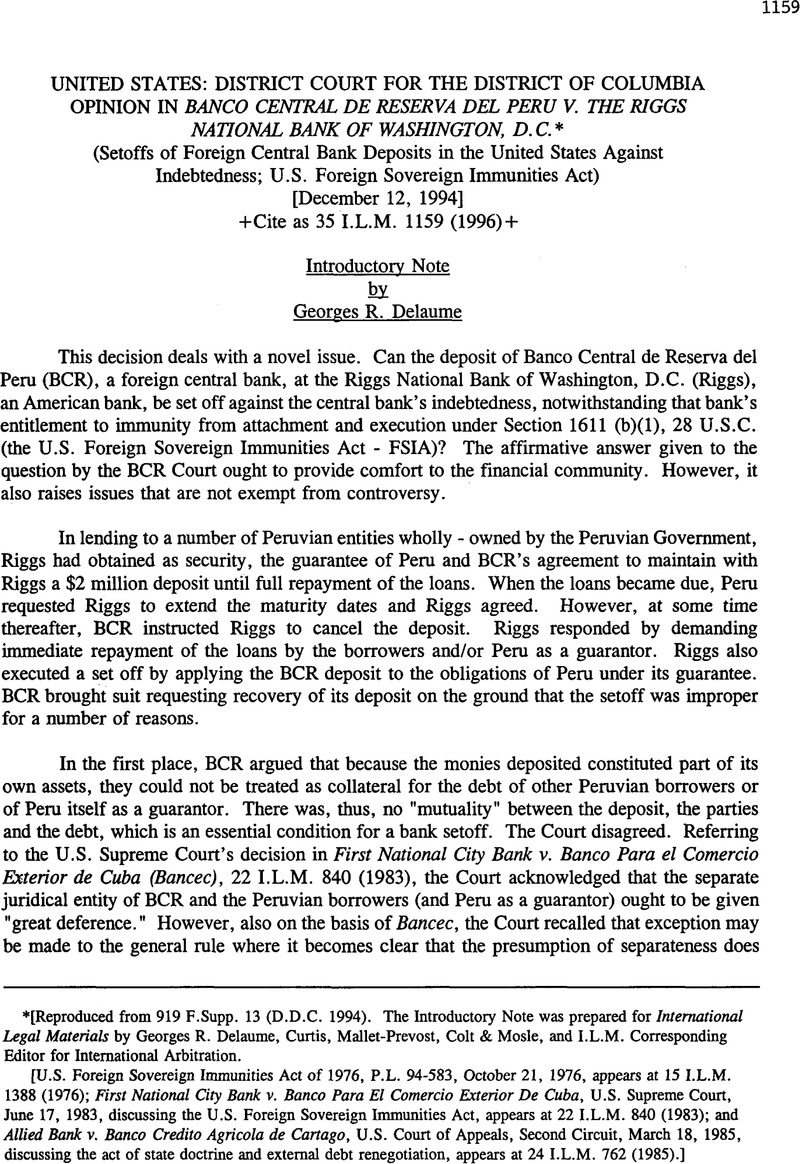No CrossRef data available.
Published online by Cambridge University Press: 18 May 2017

[Reproduced from 919 F.Supp. 13 (D.D.C. 1994). The Introductory Note was prepared for International Legal Materials by Georges R. Delaume, Curtis, Mallet-Prevost, Colt & Mosle, and I.L.M. Corresponding Editor for International Arbitration.
[U.S. Foreign Sovereign Immunities Act of 1976, P.L. 94-583, October 21, 1976, appears at 15 I.L.M. 1388 (1976); First National City Bank v. Banco Para El Comercio Exterior De Cuba, U.S. Supreme Court, June 17, 1983, discussing the U.S. Foreign Sovereign Immunities Act, appears at 22 I.L.M. 840 (1983); and Allied Bank v. Banco Credito Agricola de Cartago, U.S. Court of Appeals, Second Circuit, March 18, 1985, discussing the act of state doctrine and external debt renegotiation, appears at 24 I.L.M. 762 (1985).]
1 The only immunity BCR could claim, then, is under § 1609, which provides a general immunity from attachment, arrest, and execution for property of a foreign state. Even if this immunity were to extend to setoffs, it would not apply to BCR's deposit. Under § 1610(d)(2), the property of a foreign state is not immune from attachment designed to secure satisfaction of a judgment that may ultimately be entered against the foreign state, such as die judgment Riggs seeks here
2 The Court also finds no merit in BCR's claim that, even under United States law, Riggs was not entitled to rely on Mr. Blacker-Miller's agreement because Mr. Blacker-Miller had no authority to bind BCR. Mr. Blacker-Miller did not bind BCR; Mr. Neyra, Manager and Director of International Relations did in his telex accompanying the second $ 1 million deposit.
3 Because the Court is granting summary judgment in favor of Riggs, it will not consider the merits of Riggs’motion to dismiss for lack of prosecution.